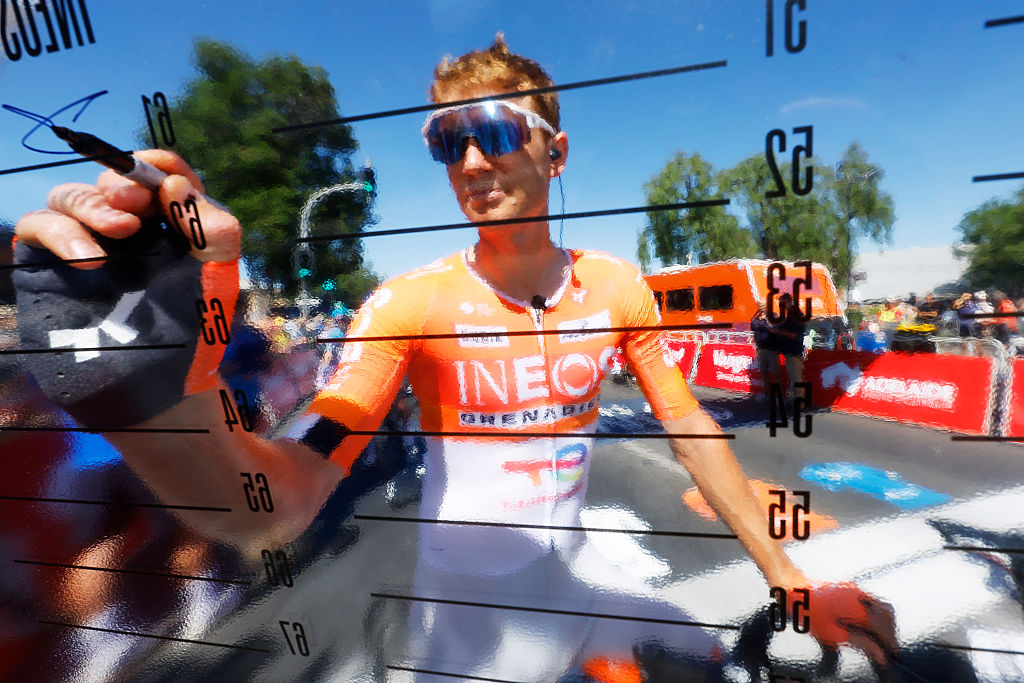Retired pro banned by ASADA in questionable process
No positive test while Cycling Australia mistakenly bans rider's brother
The latest race content, interviews, features, reviews and expert buying guides, direct to your inbox!
You are now subscribed
Your newsletter sign-up was successful
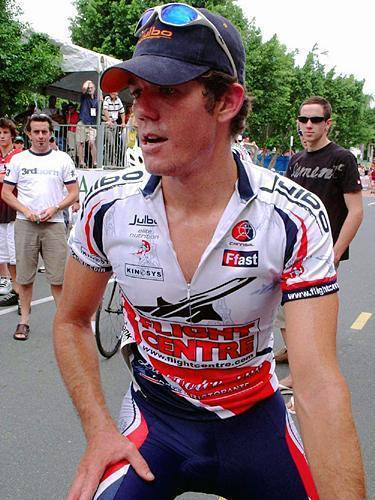
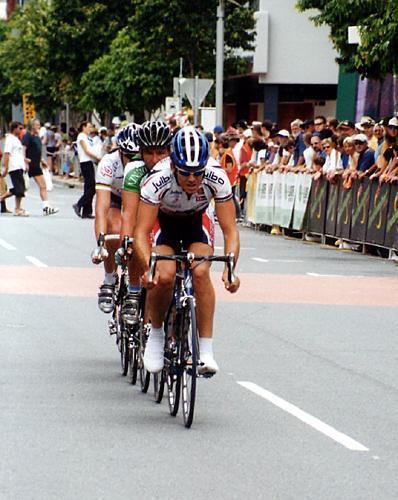
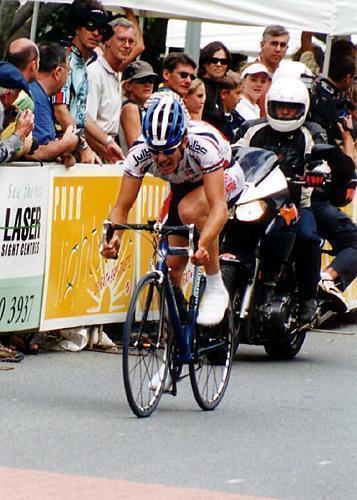
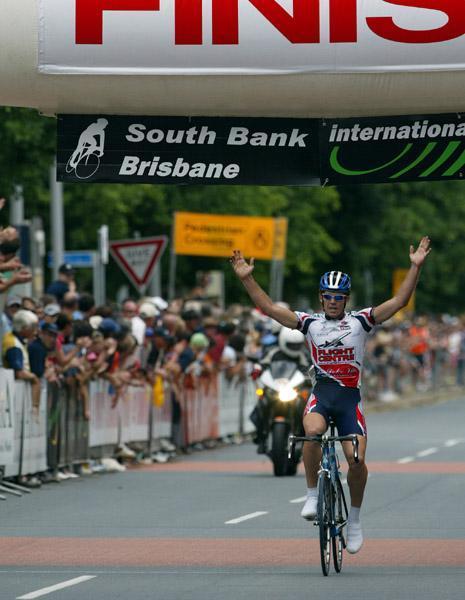
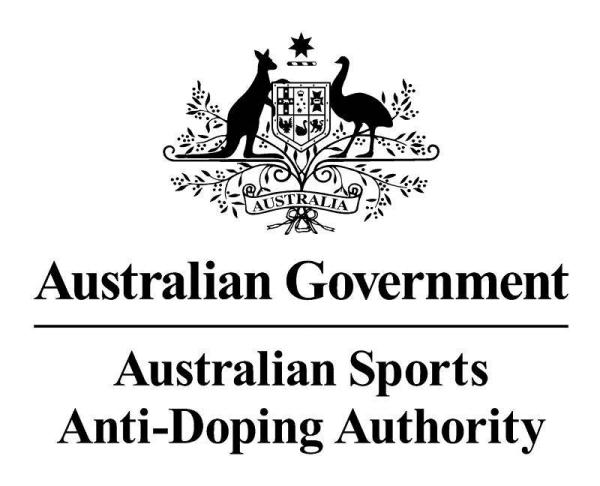
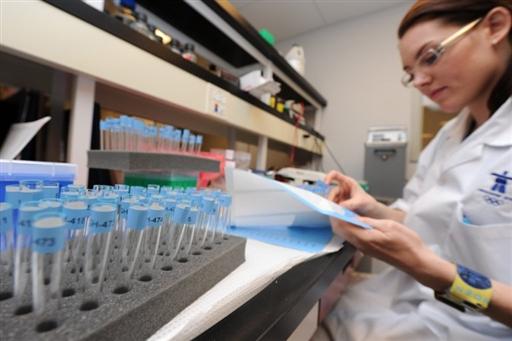
The case of Mark Roland, who in 2008 was hit with a two-year ban by the Australian Sports Anti-Doping Authority, has brought to light concerning information in regards to the processes used by both the government department and Cycling Australia.
Roland received his ban for multiple use of Human Growth Hormone (hGH) and the anabolic steroid Dehydroepiandrosterone (DHEA), despite not returning a positive test.
Cyclingnews can reveal that not only the manner in which Roland was sanctioned is questionable but also that Cycling Australia's record systems leave much to be desired.
Roland has nothing to gain at this point in time by telling his story, he immediately accepted his ban and he has long since moved on with his life; but his is a story that needs to be heard in the current environment. This is what happens when beyond reasonable doubt goes head-to-head with the burden of proof.
Bad tea leaves more than a bad taste...
Towards the end of 2002, Roland was racing in Taiwan and through the ingestion of "a bad tea", and unbeknownst to him at the time, he contracted Hepatitis A. It wasn't until a widely-publicised Severe Acute Respiratory Syndrome (SARS) outbreak occurred early in 2003 that Roland was formally diagnosed.
"It sort of explained a few things because my performance was non-existent and I couldn't work out what was going on," he told Cyclingnews. "The harder I trained the worse I got."
The latest race content, interviews, features, reviews and expert buying guides, direct to your inbox!
With no treatment available for Hepatitis A, and with his team Giant Asia increasingly frustrated with his form, Roland decided to head back to Australia in a bid for answers. He found Dr Michael Tait with whom Roland's father was also seeking consultation. Dr Tait had a strong interest in natural therapies and specialised in cancer treatments while several years earlier, he founded the Australian Anti-Aging Clinic.
Without a car as he was based in Asia, Roland would often travel with his father to appointments.
"So I went and saw him and he had various options for me," described Roland. "After a period of time I found out he was prescribing other new age or anti-aging type medication as he referred to it.
"At that stage I wasn't quite clear but when we fully discussed the options it became quite clear what he was referring to. And I then wanted to have a think about that given the gravity of the type of substance he was talking about."
Dr Tait's option for Roland was Human Growth Hormone.
Roland told Cyclingnews that at no stage did he take up Dr Tait's offer for him to use hGH. Nor did he ever receive a prescription for the drug. He continued to race, all the while his body was never able to recover from the virus.
"In early 2003 I was in and out of hospital from Pneumonia, which anecdotally seems to be as a result of my compromised health and continued racing with Hepatitis," he told Cyclingnews. "This [ongoing sickness] continued until I completely stopped racing." Roland was no longer racing seriously by 2005.
ASADAs bid for information
In 2006, Dr Tait was convicted on nine counts of illegally obtaining and selling Human Growth Hormone for which he was fined just under $10,000 by a Queensland Court. It was also found that Tait marketed the drug without prescription. Information obtained by Queensland Health during this investigation was then passed on to the Australian Sports Drug Agency which would soon be re-named the Australian Sports Anti-Doping Authority. It was alleged that Tait was supplying hGH to athletes but without legislative support, the case could not be pursued at the time.
In 2008, Dr Tait came under intense scrutiny for his alternative and often unproven therapies for terminally ill cancer patients at his Fountain of Life clinic. In 2009 the controversial doctor cancelled his own practicing licence while the Medical Board of Queensland attempted to ban him for life.
In March 2008, it was revealed that ASADA had made the bold move of attempting to access athlete's Medicare - Australia's government health scheme - prescription records in a bid to zero in on potential anti-doping violations through a pilot program. It was additional to the Authority's sharing of information with Australian Customs, Australian Federal Police and the Therapeutic Goods Administration. With hGH undetectable through testing at the time, use of the drug was an obvious target. According to an investigation by The Australian, "a list of 878 athletes and 18 support personnel, including doctors, pharmacists, trainers and coaches" was supplied by ASADA to Medicare in September 2007.
On May 19, ASADA released a statement announcing that despite earlier advice to the contrary from the Australian Government Solicitor (AGS), that it was in fact "in unintentional and technical breach of the Information Privacy Principles" as deemed by the Office of the Privacy Commissioner.
"At no time did ASADA receive or have access to any medical or other information from Medicare Australia," read the statement.
ASADA v Roland
Roland received a phone call from Queensland Health around mid 2007 and was asked "a whole pile of questions" about his experience with Dr Tait. He was very much encouraged to assist the agency with their enquiries however, had no intention of doing so. Roland was then told that he would be reported to ASADA.
On 7 March 2008, Roland was informed he was being investigated by ASADA for anti-doping violations. ASADA alleged that Roland had
1. Used or attempted to use prohibited substances;
2. Possessed prohibited substances; and
3. Trafficked and possessed prohibited substances
It was over two years since he had retired.
According to the Authority, Roland used hGH on August 27 and December 5, 2003 and also the anabolic steroid Dehydroepiandrosterone (DHEA) on those same dates, and another occasion November 16, 2004.
ASADA was not testing athletes at the Southbank Criterium in Brisbane on December 7, 2003 but they say that Roland had hGH in his system when he won the event.
A test for hGH has only been available since 2004 with a more accurate, biomarker test in use for the London Olympic Games in 2012.
So how did they find him guilty so long after the alleged anti-doping violations took place?
According to ASADA, they opened a "cold case" in January 2007 where they received additional information from Queensland Health – something they had tried before but did not have the legislative support to pursue.
"ASADA investigators developed rapport with the doctor which lead to lawful examination of doctors computer records, hard copy files, customer records, credit card transaction receipts," said Richard Ings, then Chairman of ASADA in a presentation made in the United Kingdom in June 2009. The credit card receipt used in evidence was in fact, signed by Roland’s father.
"If I challenged it at that stage it would have become public record," Roland told Cyclingnews. "I 'rolled' in the expectation and undertaking that I would be banned quietly, given that this had been afforded to other athletes in the past. In addition, I was not an active athlete and my performance over the period of alleged use was not great."
According to Roland's barrister at the time, the fact that he choose to discuss and explore all possible options in treating this illness with Dr Tait meant that any drug on the banned list that is discussed, or considered could be taken as procurement or attempted procurement and therefore the former cyclist had committed an offence.
Roland wanted the issue to "go away quietly"; he was working as a pharmaceutical representative at the time and was getting on with his life. His brother was in business with Chris White and the pair "had some big ideas" about the future of the team they were running under Pegasus Racing.
While he accepted the first charge, Roland vehemently denied both possession and trafficking.
"Whatever the outcome was I didn't want to tarnish anything going forward with them," Roland explained. "So I was quite compliant and quite willing to get whatever they wanted to achieve out of the way and done. That was the first mistake.
"To the media there was no regard for the case that I put forward," he continued. "I can understand that professionals have put forward some ludicrous reasons as to why they were taking certain drugs and almost to the extent that they're taking the piss.
"As far as I understand there was very little communication [with ASADA] as far as seeing it from my point of view. It was simply, we've got some receipts for this guy. It looks like he's guilty. He is. I don't really care what you're saying but we're going to ban you. "
Confusion reigns...
While Mark Roland was banned, his brother Brett attempted to gain a racing licence through Cycling Queensland's website in early 2009. He made a phone call to the organisation and was informed that it was a Cycling Australia issue.
He then phoned the national body and was told that he should know why he couldn't get a licence.
"My response was, 'no, I don't. Please inform me.'" Roland recalled for Cyclingnews. He was again told he should know why.
"That's when it clicked to me why I couldn't get a licence," he explained. "They'd sanctioned me. I said to her, 'You know you're talking to Brett Roland?' She said yeah. 'You're going to tell me I've been sanctioned' and she said yes."
Roland informed that both he and his brother Mark were currently banned, according to Cycling Australia records. Phone calls to ASADA confirmed that it was very much a Cycling Australia administrative issue, and Roland's lawyer became involved with concerns regarding the implications news of such a ban could have for Pegasus.
Cycling Australia CEO Graham Fredericks to his credit, was quick to have the issue amended and apologised profusely.
You don’t need to be Lance Armstrong...
Mark Roland’s case is very much a cautionary tale. Attempted use of a banned substance is in effect easier to prove than one would think. He admits that his own story does not position him in the best of lights, but is also not absolute.
"If I was still riding it would have been very different," Roland admitted saying he wouldn't have accepted the ban as readily. "I would have been gutted by the whole process. That would have put a very different spin on it."
As a sports journalist and producer since 1997, Jane has covered Olympic and Commonwealth Games, rugby league, motorsport, cricket, surfing, triathlon, rugby union, and golf for print, radio, television and online. However her enduring passion has been cycling.
Jane is a former Australian Editor of Cyclingnews from 2011 to 2013 and continues to freelance within the cycling industry.
